
Pizzicato Five was a Japanese pop band formed in Tokyo in 1979 by multi-instrumentalists Yasuharu Konishi and Keitarō Takanami. After some personnel changes in the late 1980s, the band gained international fame as a duo consisting of Konishi and vocalist Maki Nomiya. With their music blending together 1960s pop, jazz and synth-pop, the group were a prominent component in the Shibuya-kei movement of the 1990s.
Pussy Galore was an American garage rock band that formed in Washington, D.C. in 1985. They had a constantly fluid line-up until their demise in 1990. They took their name from the character in the James Bond film Goldfinger, and their sound was inspired by The Rolling Stones and Einstürzende Neubauten.

Chavez is an American band from New York City, formed in 1993. After a period of inactivity, the band re-formed in 2006. They released two independent non-charting albums in the mid-1990s. Guitarist Matt Sweeney has confirmed that the band is working on its first new recordings since 1996.
The For Carnation are a slowcore/post-rock band from Louisville, Kentucky formed in 1994. The band was formed by Brian McMahan, who is the only constant group member. McMahan's previous band Slint hinted at the distinctive sound and sombre aesthetic he would create in The For Carnation. To date they have released two EPs and one self-titled album: Fight Songs, Marshmallows, and The For Carnation. Fight Songs and Marshmallows were compiled into one record, Promised Works, and released by Runt in 1997. Promised Works was re-released by Touch and Go Records in 2007. The band has included Doug McCombs and Johnny "Machine" Herndon of Tortoise, Bobb Bruno of Best Coast, Todd Cook as well as Britt Walford and David Pajo of Slint.

Made in USA is a compilation album by Japanese pop band Pizzicato Five. The album was released in the United States on October 11, 1994 by Matador Records, serving as the band's first full-length, and second overall, American release on the label. Along with the Five by Five EP released earlier in 1994, it introduced Pizzicato Five to a Western audience.

Sweet Pizzicato Five (スウィート・ピチカート・ファイヴ) is the sixth studio album by Japanese pop band Pizzicato Five. It was released on September 21, 1992 by the Nippon Columbia imprint Triad. The album marks a turn toward a more house music-influenced sound for the band.
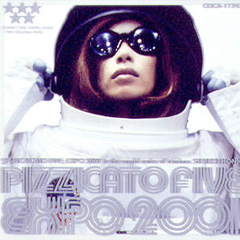
Expo 2001 is a remix album by Japanese pop band Pizzicato Five. It was released on November 1, 1993 by the Nippon Columbia imprint Triad.

Happy End of You is a remix album by Japanese pop band Pizzicato Five. The album was released on May 5, 1998 by Matador Records. It consists of remixes of songs from the band's album Happy End of the World, with the exception of "Contact", which originally appeared on Romantique 96.

Instant Replay (インスタント・リプレイ) is a live album by Japanese pop band Pizzicato Five. It was released on March 21, 1993 by the Nippon Columbia imprint Triad. The album was reissued by Readymade Records on March 31, 2006.

Bellissima! (ベリッシマ) is the second studio album by Japanese pop band Pizzicato Five. The album was released on September 21, 1988 by CBS/Sony.

Darlin' of Discothèque (ダーリン・オブ・ディスコティック) is an EP by Japanese pop band Pizzicato Five, released on April 21, 1999 by Readymade Records.
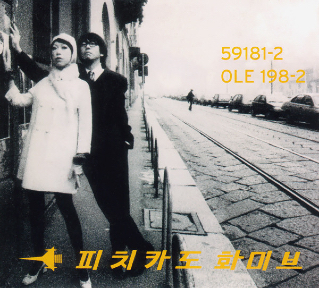
Happy End of the World (ハッピー・エンド・オブ・ザ・ワールド) is the tenth studio album by Japanese pop band Pizzicato Five. The album was released on June 21, 1997 by Readymade Records. In the United States, it was released by Matador Records on September 9, 1997 and peaked at number 32 on Billboard's Heatseekers Albums chart. A companion remix album, Happy End of You, was released in 1998. Happy End of the World was reissued by Readymade on March 31, 2006.

Overdose (オーヴァードーズ) is the eighth studio album by Japanese pop band Pizzicato Five. The album was released on October 1, 1994 by the Nippon Columbia imprint Triad. It is their first studio album not to feature founding member Keitarō Takanami, who departed the band earlier in the year. Overdose is the first of several Pizzicato Five albums to be themed around a famous city, in this case New York. The album pays tribute to soul music, and soul singer Stevie Wonder in particular, with several songs incorporating Wonder's signature instrument, the harmonica.
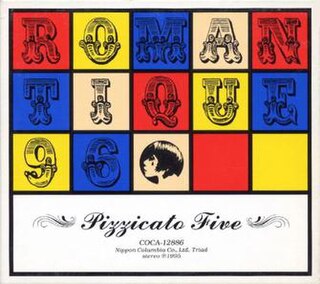
Romantique 96 (ロマンティーク96) is the ninth studio album by Japanese pop band Pizzicato Five. It was released on September 30, 1995 by the Nippon Columbia imprint Triad. The album is highly inspired by 1960s French cinema and music. It was reissued by Readymade Records on September 30, 2000 and March 31, 2006.
The discography of Japanese Shibuya-kei group Pizzicato Five includes 13 studio albums, one live album, one soundtrack album, 16 compilation albums, nine remix albums, six video albums, 13 extended plays and 21 singles.
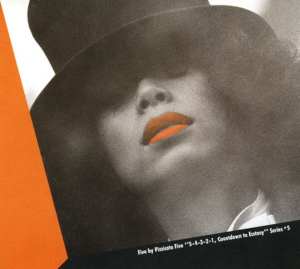
This Year's Girl (女性上位時代) is the fifth studio album by Japanese pop band Pizzicato Five. It was released on September 1, 1991 by the Nippon Columbia imprint Seven Gods, serving as the band's first album for Nippon Columbia. This Year's Girl is the first Pizzicato Five album to feature Maki Nomiya as lead vocalist. On the album, the band augmented their Shibuya-kei sound with elements of alternative dance and began to more fully incorporate sampling into their music.

Couples (カップルズ) is the debut studio album by Japanese pop band Pizzicato Five. The album was released on April 1, 1987 by CBS/Sony.

Pizzicato Five is the twelfth studio album by Japanese pop band Pizzicato Five. The album was released on November 20, 1999 by Readymade Records. Under the title The Fifth Release from Matador, it was released in the United States on November 14, 2000 by Matador Records. Pizzicato Five was reissued on March 31, 2006.
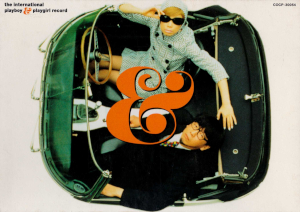
The International Playboy & Playgirl Record (プレイボーイ プレイガール) is the eleventh studio album by Japanese pop band Pizzicato Five. The album was released on October 1, 1998 by Readymade Records. Under the title Playboy & Playgirl, it was released in the United States on April 20, 1999 by Matador Records. The International Playboy & Playgirl Record was reissued on March 31, 2006.
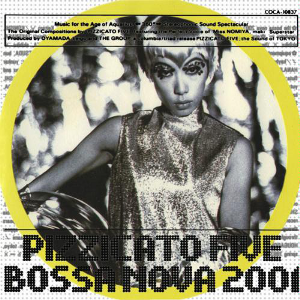
Bossa Nova 2001 (ボサ・ノヴァ2001) is the seventh studio album by Japanese pop band Pizzicato Five. It was released on June 1, 1993 by the Nippon Columbia imprint Triad. The band co-produced the album with acquaintance and fellow Shibuya-kei artist Cornelius. Following the house music-oriented Sweet Pizzicato Five the previous year, Bossa Nova 2001 signaled a return to the band's 1960s and 1970s-influenced pop style, mixed with elements of alternative dance.

















